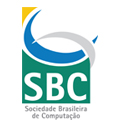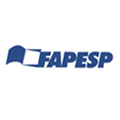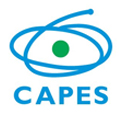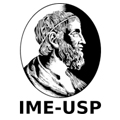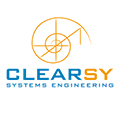Scope and Topics
The aim of SBMF is to provide a venue for the presentation and discussion of high-quality work in formal methods. The topics include (not limited to):
- Techniques and methodologies, such as method integration; software and hardware co-design; model-driven engineering; formal aspects of popular methodologies; formal design; development methodologies with formal foundations; software evolution based on formal methods;
- Specification and modeling languages, such as well-founded specification and design languages; formal aspects of popular languages; logic and semantics for programming and specification languages; code generation; formal methods of programming paradigms (such as objects, aspects, and component), formal methods for real-time, hybrid, and safety-critical systems, formal models of service-oriented, cloud-based, and cyber-physical systems;
- Theoretical foundations, such as domain theory; type systems and category theory; computational complexity of methods and models; computational models; term rewriting; models of concurrency, security and mobility;
- Verification and validation, such as abstraction, modularization and refinement techniques; program and test synthesis; correctness by construction; model checking; theorem proving; static analysis; formal techniques for software testing; software certification; formal techniques for software inspection;
- Experience reports regarding teaching formal methods; applications, such as experience reports on the use of formal methods; industrial case studies; tool support.
Important Dates
- Paper Submission Deadline: **Friday 02 August 2019** (extended)
- Paper Acceptance Notification: Thursday 03 October 2019 (new date)
- Paper Camera-ready Version: Tuesday 29 October 2019 (new date)
- Paper Revision for SCP: Monday 14 January 2020 (extended)
- Paper Acceptance Notification for SCP: Tuesday 21 January 2020
- Paper Camera-ready Version for SCP: Tuesday 18 February 2020
All deadlines are AOE: Anywhere On Earth (UTC -12). For instance, the paper submission deadline is 9am Saturday 03 August 2019 in São Paulo (UTC -3).
Publication
SPECIAL ISSUE OF SCIENCE OF COMPUTER PROGRAMMING
This year there will be two rounds of refereeing, one before the conference and one after. All papers accepted to the conference will be published in ArXiv prior to the conference. Those papers that meet the criteria for publication in Science of Computer Programming will be invited to submit a revision to be considered for publication in SCP, taking into account the comments on the first round of refereeing and feedback from presentation at the conference. The first and second rounds of refereeing will adhere to the schedule above.
Paper Submission
Papers should present unpublished and original work that has a clear contribution to the state of the art on the theory and practice of formal methods. They should not be simultaneously submitted elsewhere.
Papers will be judged by at least three reviewers on the basis of originality, relevance, technical soundness and presentation quality, and should contain sound theoretical or practical results. Industry papers should emphasize practical application of formal methods or report on open challenges.
Papers will be published before the conference in ArXiv, and revised papers that meet the criteria will be published after the conference in Science of Computer Programming.
Please prepare your paper using the instructions available at: https://www.elsevier.com/authors/author-schemas/latex-instructions
Following the SCP instructions, we do not limit the number of pages. The first goal is to get quality papers. Complete articles are expected, providing all details that a reader needs if she/he intends to cover a subject. Usually, around 30 pages per article are sufficient.
Every accepted paper MUST have at least one author registered in the symposium by the time the camera-ready copy is submitted; the registered author is also expected to attend the symposium and present the paper.
Papers can be submitted via the following link: https://ees.elsevier.com/scico/default.asp
Authors must select the following Article Type:
- VSI: SBMF 2019
If you do not already have one, please create an account in Elsevier Editorial System (EES). If you are already registered in EES as an Author, Reviewer, or Editor, please use your current username and password.
PC Committee
PC Chair
Philip Wadler, University of Edinburgh, UK
Adolfo Duran, UFBA, Brazil
PC Committee
Alexandre Mota, UFPE, Brazil
Alysson Filgueira Milanez, IFPB/ Unifacisa
Ana de Melo, USP, Brazil
Augusto Sampaio, UFPE, Brazil
Brijesh Dongol, The University of Surrey, UK
Gustavo Carvalho, UFPE, Brazil
Jaco van de Pol, Aarhus University, Denmark
José Luiz Fiadeiro, Royal Holloway University of London, UK
Juliano Iyoda, UFPE, Brazil
Leila Ribeiro, UFRS, Brazil
Leo Freitas, Newcastle University, UK
Leopoldo Teixeira, UFPE, Brazil
Luis Soares Barbosa, Universidade do Minho, Portugal
Mahsa Varshosaz, IT University of Copenhagen, Denmark
Manfred Broy,Technische Universität München, Germany
Marcel Oliveira, UFRN, Brazil
Márcio Cornélio, UFPE, Brazil
Maurice ter Beek, Istituto di Scienza e Tecnologie dell’Informazione, Pisa, Italy
Neda Saeedloei, Southern Illinois University Carbondale, USA
Nils Timm, University of Pretoria
Rachid Echared, CNRS and University Grenoble-Alpes, France
Sidney Nogueira, UFRPE, Brazil
Simone Hanazumi, HP, Brazil
Thierry Lecomte, CLEARSY Systems Engineering, France
Tiago Massoni, UFCG, Brazil
Volker Stolz, Western Norway University of Applied Sciences, Norway
Steering Committee
Philip Wadler, University of Edinburgh, UK
Adolfo Duran, UFBA, Brazil
Mohammad Mousavi, University of Leicester, UK
Tiago Massoni, UFCG, Brazil
José Fiadeiro, Royal Holloway University of London (UK)
Simone Costa, UFPel, Brazil


